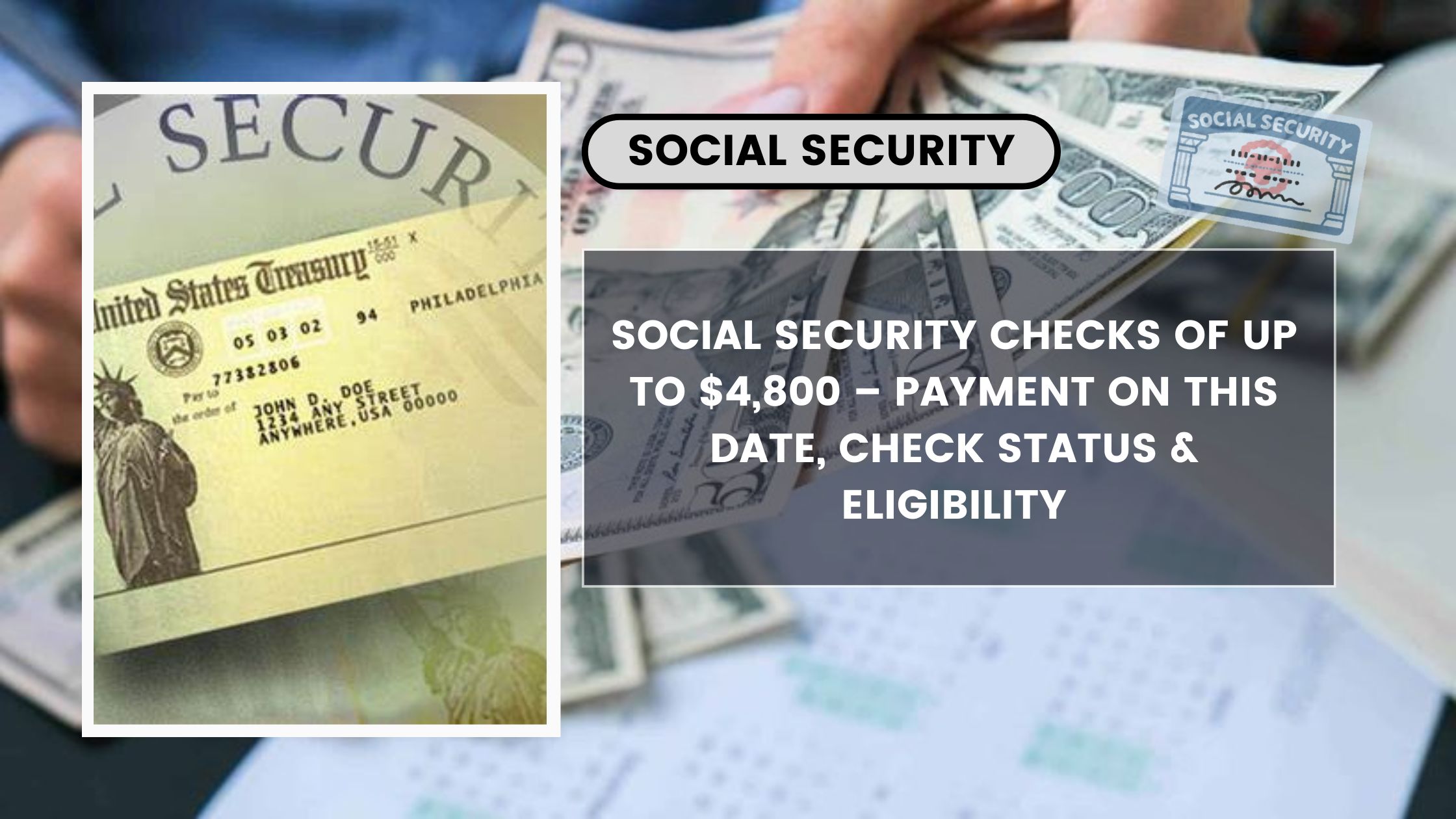Social Security payments play a crucial role in supporting millions of retirees, disabled individuals, and survivors in the United States. The amount received varies based on factors such as earnings history, age of claiming benefits, and eligibility. In 2024, some recipients could receive checks of up to $4,800. This article will cover the payment schedule, eligibility criteria, and how to check the status of your benefits.
Social Security Payment Amounts
The Social Security Administration (SSA) calculates benefit amounts based on several factors:
- Lifetime Earnings: The more you earn and pay into Social Security, the higher your benefits.
- Full Retirement Age (FRA): Those who wait until their FRA or later receive larger monthly payments.
- Cost-of-Living Adjustments (COLA): Yearly increases ensure benefits keep up with inflation.
- Disability & Survivor Benefits: Individuals who qualify under these categories may receive different payment amounts.
For 2024, the highest possible monthly benefit at full retirement age is $3,822, but those who delay retirement until age 70 could receive close to $4,800 per month.
Payment Schedule – When Will You Receive Your Check?
Social Security checks are typically distributed based on birth dates:
- Born 1st–10th: Payment on the second Wednesday of each month.
- Born 11th–20th: Payment on the third Wednesday of each month.
- Born 21st–31st: Payment on the fourth Wednesday of each month.
Supplemental Security Income (SSI) payments are sent on the 1st of each month unless it falls on a weekend or holiday, in which case it is sent earlier.
Eligibility Criteria for Social Security Payments
To qualify for Social Security benefits, individuals must meet the following criteria:
- Work Credits: Must have worked and paid Social Security taxes for at least 10 years (40 credits).
- Age Requirement:
- Retirement benefits begin as early as 62 (with reduced amounts).
- Full benefits available between 66–67 depending on birth year.
- Maximum benefits at age 70.
- Disability Benefits: Available for individuals with a qualifying medical condition preventing substantial work.
- Survivor Benefits: Dependents and spouses of deceased beneficiaries may qualify.
How to Check Your Social Security Payment Status
If you’re expecting a Social Security payment, you can track it through the following methods:
- Online: Visit SSA.gov and log into your My Social Security account.
- Phone: Call the SSA customer service at 1-800-772-1213.
- Mail Notification: If there are issues with your payment, the SSA will notify you via mail.
- Bank Account: Direct deposits will show up in your bank balance on the scheduled payment date.
What to Do If You Haven’t Received Your Payment
If your Social Security check is delayed, follow these steps:
- Wait three business days after your expected date.
- Check your bank statement for direct deposits.
- Contact the SSA helpline if the issue persists.
- Visit a local SSA office for assistance.
Future Changes to Social Security Payments
The SSA adjusts payments yearly based on COLA increases. In 2024, the COLA was 3.2%, impacting monthly benefits. Future adjustments will depend on economic factors such as inflation and wage growth.
Conclusion
Social Security benefits are an essential source of income for many Americans. Knowing your eligibility, expected payment date, and how to check your status ensures you stay informed. Whether you receive retirement, disability, or survivor benefits, staying updated with the SSA’s guidelines will help you maximize your payments.
FAQs
1. Can I receive Social Security and work at the same time?
Yes, but if you are under full retirement age and earn above a certain limit, your benefits may be temporarily reduced.
2. How can I maximize my Social Security benefits?
Delaying retirement until age 70, increasing lifetime earnings, and coordinating spousal benefits can increase your monthly payments.
3. What if my Social Security check is lower than expected?
Your benefit amount depends on factors like early retirement, work history, and deductions for Medicare premiums.
4. Are Social Security payments taxed?
Yes, depending on your total income. If you earn above a certain threshold, a portion of your benefits may be subject to federal taxes.
5. How often does Social Security payment increase?
Payments increase annually based on COLA, ensuring that benefits keep up with inflation.

